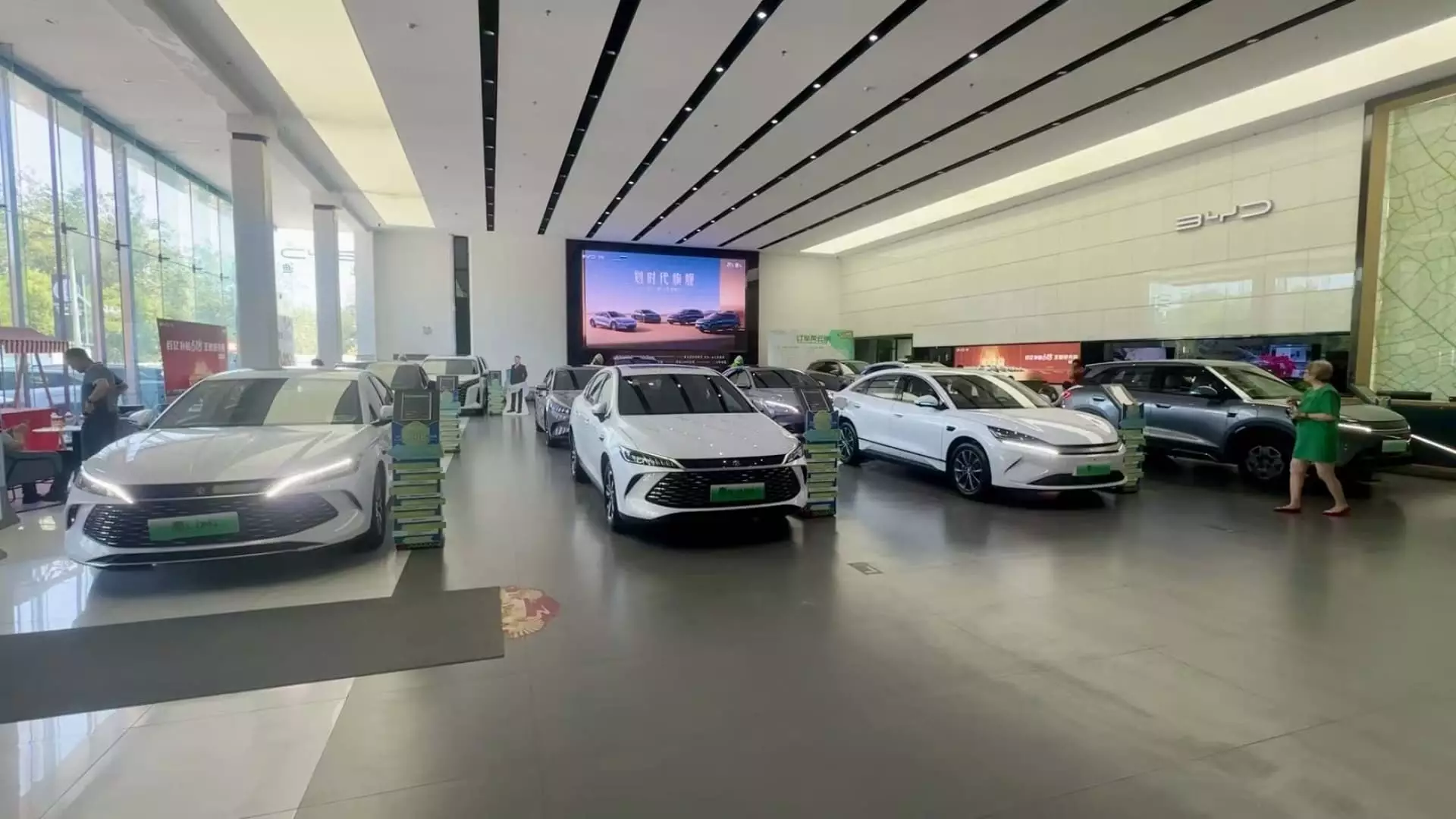As the electric vehicle (EV) market in China accelerates, what seems to be a burst of innovation and consumer choice may ultimately lead to a concerning downward spiral. The words of salesman Ma Hui encapsulate the disquiet reverberating through the industry: China’s EV sector is racing towards an unsustainable abyss. The aggressive price-cutting craze, exemplified by companies like BYD, represents far more than a reckless scramble for market share; it’s a potential harbinger of economic malaise. As the market leader announces discounts of up to 34%, the question must be asked: Is the allure of cheap electric cars worth the risk of dismantling an entire industry?
The sentiments reverberating through the Chinese used car market highlight an urgent need for introspection. Ma Hui’s description of despair among his peers isn’t just anecdotal; it’s an alarming symptom of an industry in turmoil. When local businesses who depend on vehicle sales struggle to stay afloat, one must ponder the long-term viability of endless price wars. The drive towards high volume sales at the lowest cost—embodied in the launch of deeply discounted models—might shift the landscape from one of growth and innovation to one teetering on the brink of collapse.
Critique from Within: A Dismal Reflection
Even the authoritative voice of the People’s Daily has weighed in, cautioning against an ecosystem increasingly riddled with “disorderly price wars.” The stark warning that such practices lead nowhere is a plea for sanity amidst chaos. In an age where businesses should aspire to create value, we find them caught in a cycle of desperation. The race to the bottom isn’t just unsustainable; it disrupts the complete value chain, shrinking profits and, ultimately, livelihoods. If companies continue to compete solely on price, where does that leave investment in technology and innovation? As profits plunge, research and development budgets are the first victims, endangering the future of a sector that could otherwise thrive.
This internal strife is reminiscent of the issues plaguing China’s property market—often cited as a cautionary tale of reckless speculation and financial instability. The head of Great Wall Motor fears an “Evergrande-like” crisis could be imminent in the automotive sector. If anything, this parallel should serve as a wake-up call. It signals an impending reckoning that could have severe repercussions for the Chinese economy at large.
The Government’s Rising Concerns
The situation has drawn the attention of governmental bodies, which traditionally prefer an iron grip on market dynamics. The China Association of Automobile Manufacturers (CAAM) has recently warned against “dumping” vehicles below production costs, a veiled indictment largely aimed at BYD and its competitors. Such admissions point towards the disturbing reality that the fire of competition might be burning too fiercely, threatening both the players and the marketplace’s structural integrity. By encouraging a race to the bottom, companies not only jeopardize their existence but also tarnish the reputation of the burgeoning EV industry, which has been hailed as a global leader in sustainable transportation.
As executives like Ma continue to observe the market from the frontlines, their reality is only becoming more grim. With consumer confidence faltering amid a cooling economy, buyers are postponing decisions, waiting for prices to fall further. This pattern is eerily reminiscent of a consumer freeze, where uncertainty leads to an unwillingness to engage. Such indecision generates a pernicious cycle where potential buyers become potential casualties in a battle where everyone loses.
The Road Ahead: A Fork in the Track
There lies a pivotal moment for the entire industry. The current price war reflects not merely a market strategy but a profound existential dilemma. On one hand, consumers benefit from lower prices and broader choices. On the other, the very framework that allowed for rapid growth is under siege. The drive for profit must coexist with ethical considerations about the sustainability of competition in the EV market. As consumers and businesses alike recoil from this financial theatre, the hope is that saner minds will take charge before the wreckage becomes irrevocable.

